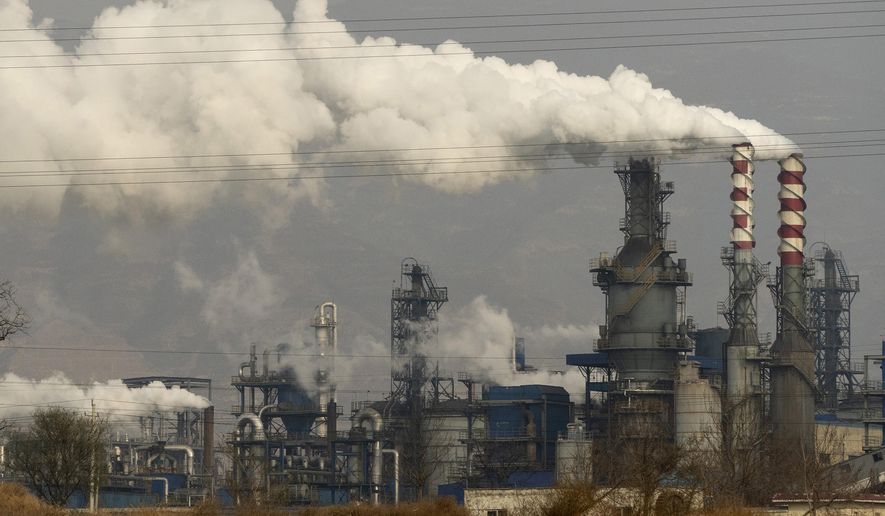Secretary of State Antony Blinken gave China a nudge Sunday on climate change, saying the world’s largest emitter needs to “think about stepping up” on reducing its greenhouse gases.
Asked what incentive Chinese President Xi Jinping has to curtail its reliance on fossil fuels, Mr. Blinken cited global pressure, saying that China wants to avoid being seen as out of step with the rest of the world.
“I think the No. 1 interest is in not being a world outlier,” Mr. Blinken said on CBS’ “Face the Nation.” “And as I said, their own people would benefit dramatically from China taking the necessary steps on climate change. So would the international community. To the extent that China cares about how it’s seen in the world, it also needs to think about stepping up.”
The U.N. climate summit known as COP26 starts Sunday, but Mr. Xi is not attending. In addition, China has not increased its Paris Agreement climate commitment ahead of the meeting in Glasgow, Scotland, while President Biden nearly doubled the U.S. goal on emissions reductions.
What incentive does China, the world’s largest polluter, have to act on climate?
— Face The Nation (@FaceTheNation) October 31, 2021
“The number one interest is in not being a world outlier,” @SecBlinken tells @margbrennan, saying the people of China would “dramatically” benefit from taking “necessary steps on climate change” pic.twitter.com/vXZsuEBfbx
“It’s ultimately going to be up to China as now currently the world’s largest emitter to decide whether it is going to do the right, important thing for its own people, but also for everyone around the world,” Mr. Blinken said on CNN’s “State of the Union.”
Under the 2015 Paris agreement, more than 190 countries agreed to implement policies consistent with limiting the rise in global warming to 1.5 degrees Celsius, but a U.N. report released last week found that the world is on track to heat up by 2.7 degrees by the end of the century.
“Unless we’re all in this together taking the steps necessary to keep warming to 1.5 degrees Celsius, then it’s going to be a problem,” said Mr. Blinken.
Mr. Biden set a target in April of reducing U.S. emissions by 50% to 52% by 2030 under the terms of the Paris agreement, which calls for nations to increase their goals every five years.
In 2015, then-President Obama submitted a target of reducing U.S. emissions by 26-28% from 2005 levels by 2025. With four years to go, the U.S. is not on track to meet that goal, even though the nation has led the world in terms of absolute emissions reductions versus as a percentage of its emissions.
China has agreed to reach peak emissions in 2030 and seek to reach carbon neutrality by 2060. In the meantime, the Chinese have continued to build coal-fired plants while increasing their solar energy output.
Critics of U.S. policies warn that China will seek to take advantage of the Biden administration’s move away from fossil fuels to improve its strategic position, while Mr. Blinken said the U.S. would exert pressure on the communist nation.
“We are pressing to get an agreement to make sure that countries don’t finance coal projects internationally,” said Mr. Blinken. “This is one of the biggest drivers of emissions around the world, but you’re right, we have to actually do what we say and make sure that others that have not made the necessary commitments, including China, now the world’s largest emitter, actually step up and do the right thing.”
• Valerie Richardson can be reached at vrichardson@washingtontimes.com.




Please read our comment policy before commenting.